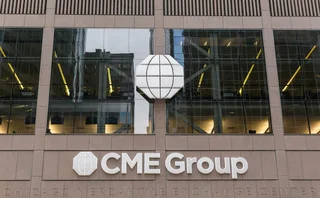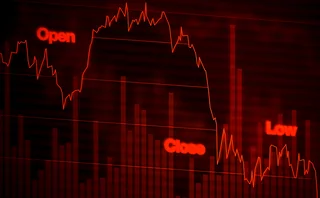
Brexit hedging leaves Ficc books unbalanced
Market-making desks struggling to recycle some client flows ahead of referendum

Bank market-makers are struggling to recycle some interest rate and inflation client flows targeting the UK's referendum on membership of the European Union, say traders, meaning they have to warehouse positions that could lead to losses if the vote today (June 23) results in a violent market move.
The referendum has two possible outcomes – either the UK remains in the EU or leaves. An interest rate options trader at one major dealer says his desk is trying to keep its exposure flat through the
Only users who have a paid subscription or are part of a corporate subscription are able to print or copy content.
To access these options, along with all other subscription benefits, please contact info@risk.net or view our subscription options here: http://subscriptions.risk.net/subscribe
You are currently unable to print this content. Please contact info@risk.net to find out more.
You are currently unable to copy this content. Please contact info@risk.net to find out more.
Copyright Infopro Digital Limited. All rights reserved.
As outlined in our terms and conditions, https://www.infopro-digital.com/terms-and-conditions/subscriptions/ (point 2.4), printing is limited to a single copy.
If you would like to purchase additional rights please email info@risk.net
Copyright Infopro Digital Limited. All rights reserved.
You may share this content using our article tools. As outlined in our terms and conditions, https://www.infopro-digital.com/terms-and-conditions/subscriptions/ (clause 2.4), an Authorised User may only make one copy of the materials for their own personal use. You must also comply with the restrictions in clause 2.5.
If you would like to purchase additional rights please email info@risk.net
More on Markets
Does FX Spot+ add up for traders?
New CME venue aims to provide easier access to FX futures liquidity, but some worry about its stability in choppy markets
High CNH rates curb appetite for Hong Kong’s new repo scheme
Dealers remain hopeful initiative is a prelude to full onshore repo market access
CME-FICC cross-margin programme sees increased demand
Joint arrangement aids netting, reduces clearing costs and increases capacity
JP Morgan QIS notionals hit $100bn
Dealer sees 15% annual growth in ‘imperfect’ notional measure, eyes rates and FX for next phase
Can Europe prepare ground for insurers in securitised products?
Convincing regulators to make investing more viable would be a first step to revitalising insurer interest
‘Trump slump’ hedges rise on rate cut fears
One dealer notes fivefold increase in number of clients hedging against possibility of faster rate cuts
Short-term Trump FX trades ‘dead’ as euro rallies
EUR/USD spot rally and vol spike sees mass unwinds of long USD trades
Disappearing dealer gamma spurs wild stock swings
Stock market selloff leaves dealers perilously close to peak short gamma positioning







